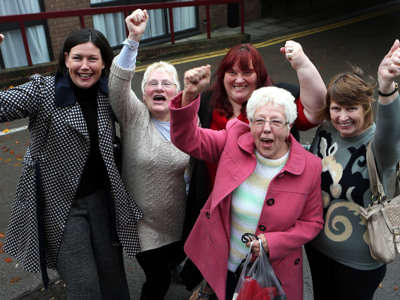
Denial of racism in the Commission for Race and Ethnic Disparities’ Report
Roshan Croker discusses the Commission for Race and Ethnic Disparities’ Report.
Posted on 07 April 2021
To those familiar with its origins and some of the key personnel behind it, the fact that the Commission for Race and Ethnic Disparities’ Report, published 31 March, 2021, is largely an exercise in racism denial and gaslighting was not a surprise. Announcing the report, PM Boris Johnson said that he wanted the Commission to “change the story” on racial issues as “the story of success” has gotten lost and we need to “stop the sense of victimisation and discrimination”. This report seems clearly produced to fulfil that order.
The report puts forward a clear narrative. It argues that Britain is less racist than it was in the past and is less racist than other white majority countries, and it is this that we should focus on, rather than on the racial discrimination which still occurs. Racial discrimination may well be less prevalent than it was in the past or still is in other white majority countries. But even if that is the case, why should we be satisfied with such a low bar?
While the report itself is not quite as awful as the summary briefed to the press ahead of release to get headlines and media coverage without proper scrutiny, it still contains shockingly offensive passages such as that suggesting a “new story” needs to be told about slavery. Unlike the summary, it doesn’t deny that institutional racism exists, but fails to find what it is not looking for, and despite shocking and recent examples like the Windrush scandal, the Report is emphatically not looking to uncover any institutional discrimination. To do so would undermine the narrative it apparently wants to present.
As you might expect from a document which has been criticised by experts for cherry picking data to suit its argument, the report is incoherent. It cites educational attainment in the Black African community as a great success story. It then includes but fails to consider data showing that Black Africans are the most likely group to be unemployed at age 16-24. The report rightly cites geography as an important factor to take into account when considering differential outcomes. But it then argues that a race pay gap of 2.3 per cent between white and ethnic minority Britons is evidence of minimal pay discrimination, despite 40 per cent of ethnic minority Britons living in London, which skews the data with its higher wages arising from greater living costs. Why is the report even using blanket statistics covering all non-white groups to justify its arguments when one of the sensible recommendations was to disaggregate the term BAME as it was unhelpful to lump together ethnic minorities with different experiences?
Regardless of the fact that racial discrimination may have been worse in the past, in the present job applicants from ethnic minority backgrounds still have to send out 60 per cent more applications than a white person to get a call back. No matter the comparative rate of racial harassment abroad, in this country black men are nine times more likely than white men to be stopped and searched by the police. Right here, right now, black women are four times more likely to die in pregnancy or childbirth than white women. This discrimination exists and has real, life-changing consequences. It will not go away if we try and downplay it or ignore it.
This report doesn’t reflect the experiences of our clients, who continue to face racial discrimination that is no less damaging to their mental health and careers. The unwillingness of the report to identify any institutional or structural racism doesn’t ring true given the challenges our clients face getting employers, service providers and courts to acknowledge and remedy racial discrimination. In fact it doesn’t even reflect the considerable evidence that the Committee received that discriminatory institutions, structures and processes were the cause of disparities, which they appear to have simply disregarded.
Given all this, it is hard to take the report seriously. However it will be used to deny the existence of racism and as fuel by those keen to pursue a cynical and divisive “war on woke” by sowing and manipulating division for political ends.
Despite this, the response to the report has been heartening. Unions, charities, community leaders and prominent individuals have all made their outrage clear. Days after its release, front pages were still featuring the backlash to the report. However much those behind the report may wish it, campaigners will not be cowed and attempts to turn back the clock, and silence the very voices and movements responsible for the improvements in equality over the last two to three decades the report trumpets, will not succeed.



